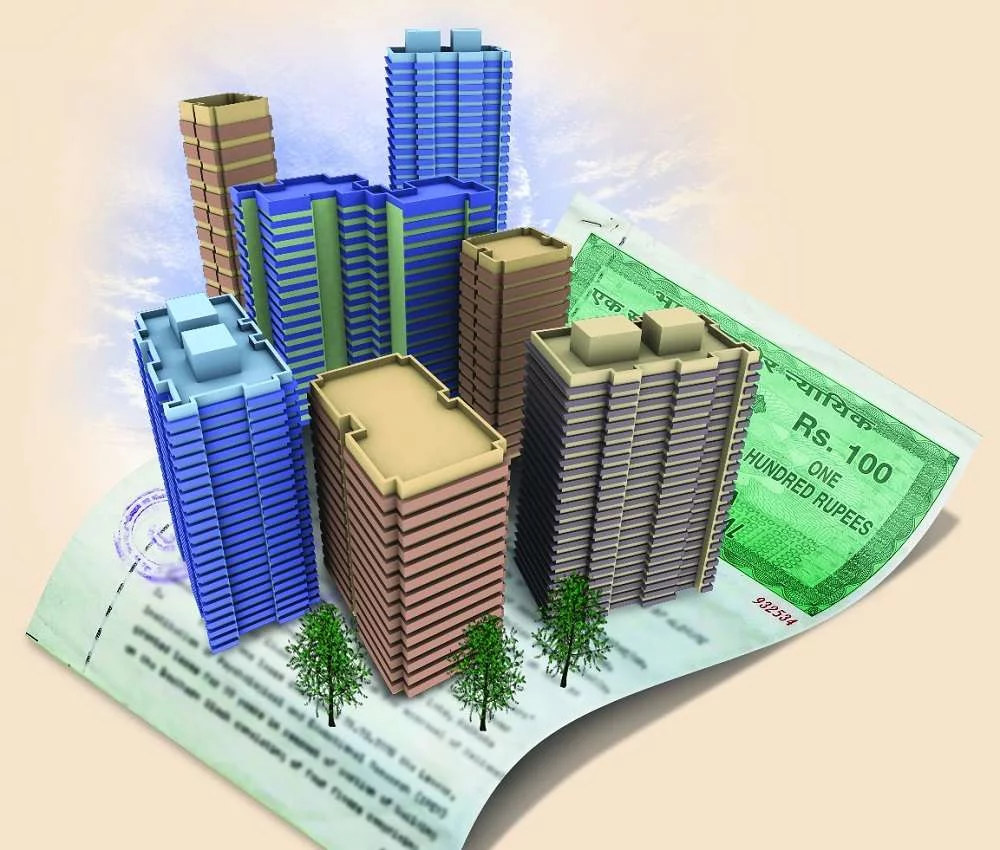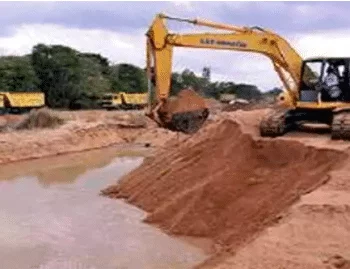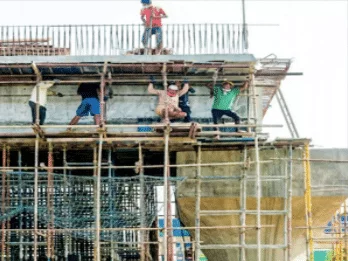Frequently asked questions
Learn the answers to common questions before you choose us.
General
Why should I choose hire and build?
Customer satisfaction and best quality construction is our top most priority. We provide 15 years warranty for construction which no other building contractor in the market will provide you! Not only this you also get regular updates and on-time delivery.
Can you provide only architectural and structural designs?
Yes, we can provide you architectural and structural designs alone.
I am an NRI, how can you provide service to me?
Our primary value is to any customer who wouldn’t be able to spend time or effort in monitoring their project even if you are overseas. All our process is digital, signing of agreements, money transactions, project progress reports. We ensure a safe and peaceful project delivery.
House Construction
Which cement is best for house construction?
Choosing the type of cement depends on various factors like cost of the cement, it’s availability in the market, quality requirement and structural importance.
Normally OPC 43 and 53 grades are used. OPC 43 grade cement is best to use for plastering works, brickwork, flooring work since this is cost-effective compared to OPC 53.
OPC 53 grade cement is used for concreting the structural members(foundation, columns, beams etc) as this will offer high strength. Higher-grade cement shows higher strength but due to high heat of hydration, this develops cracks on plaster.
This is the reason lower grade cement is best to use for plastering.
What is the average cost to build a house in Chennai?
The average cost of construction of a house in Chennai ranges from Rs.1800-2300/- per sq.ft in 2021.
Note that the cost depends mainly on the quality of materials and quality of the work done.
Which brand of steel is best for house construction?
Here are a few brands of steel you can rely on:
ARS and JSW are the standard brands used for house construction. There are also premium brands of steel used for construction like TATA Tiscon bars, Vizag Steel and SAIL
Can we change the brand of the construction material you give in the specifications?
Of course, everything is customizable. You can change the brands of the construction materials or you can upgrade any construction material as per your choice. You only need to pay the difference in the cost.
How many litres of sump is required for a family of four?
A load of lorry water will have a capacity of 8000 litres or 9000 litres, based on this sump capacity will be determined. Normally a family of four would require 10,000 litres sump and the cost per litres of sump would be Rs.20/- per litre.
What is the ideal level of foundation height?
The ideal level of foundation height is 2 feet from the existing road level.
There are few other factors that are to be considered before deciding the height of the foundation:
- Check if there is drainage connection in the locality if it is not available, government will increase the road height when drainage connection is built.
- If there is drainage connection available but if the area is prone to flood height of the foundation should be increased.
- Also make sure the foundation height is not increased too much, if the car parking ramp is too steep it will be hard for to park the car.
What is your warranty policy?
We offer 6 months warranty for electrical and plumbing materials. For structure, we offer 15 years warranty.
Building plan approvals
What is planning permission?
Before undertaking any building construction you have to get Planning Permission from the CMDA or Municipality Township or Panchayat Union which is must under the Town & Country Planning Act.
The permission you get from the government is valid for 3 years from the date of issue. You can renew the planning permission for another 3 years by applying within the validity period.
How to get plan approval from the government for commercial or residential construction?
For getting plan approval from the government you have to submit the filled form to the CMDA office or Municipality Township or Panchayat Union. There are two types of form available. Form “A” is for laying out the lands for building purposes and Form-‘B’ for all the other developments like residential, commercial buildings. You can get this application form by paying the fees for the form and get from these offices(Chennai City Municipal Corporation or Municipality Township or Panchayat Union). CMDA office won’t sell these forms, you have to fill these applications directly with the Corporation or local body.
What are the documents that need to be attach with your application?
You should submit five copies of plans showing:
- A detailed site plan with the floor plan of the proposed structure clearly indicating the dimensions and set back from the property boundaries.
- Plan, elevation and sectional details of the building which is proposed to be constructed.
- Key plan which shows the location of the site. All these plans and the applications should be signed by the applicant and an Architect or a licensed Surveyor.
- Clearance from the respective authority (whenever necessary)
- Sale deed or Lease deed and Patta to establish your title to the land.
Where you should file these applications?
You have to submit the filled applications to the Chennai Corporation or Municipalities or Panchayat Union Offices or the Town Panchayat. This depends on the location of the land you want to build the structure.
On what basis the permission will be issued?
Government officials will check your application for the agreement of land use. They will check the contract for which the land is under the detailed development plan observance of the development regulations. If your plan matches the development regulations, you will get the planning permission.
Compound wall constructions
What is the importance of constructing a compound wall?
Compound wall not only provides aesthetic appearance, but it also provides privacy and security to your property. The compound wall serves as a barrier between your property and the rest of the properties. It acts as a boundary line showing the extent of your plot and prevents encroachment of your land. Compound wall also prevents any movement of unwanted objects to your property.
What is the ideal height of the compound wall?
As per NBC(National building code of India), the compound wall can have a minimum of 1.5m height and maximum of 2.4m height with the permission from the local municipality. This height is measured from the centerline of the front street of the building.
The ideal height of the compound wall would be 6 feet from ground level. As per Vastu the height of the compound wall should be 6 feet and if the surrounding Vastu is bad the compound wall height should be 7 or 8 feet. In certain cases where the ground level below road level, increased height compound wall will be required. In those cases height of the compound wall can be decided based on the basement height.
How to build a low-cost compound wall? Or what is the minimum cost for building a compound wall?
A low-cost compound wall can be built with precast concrete posts with slabs. The cost of such low-cost compound wall would be Rs.800/feet. If your plot is 30X40, total length of your compound wall will be 30feet+40feet+30 feet+40 feet = 140 feet minus 10 feet gate = 130 feet. Cost of this compound wall will be Rs.1,04,000 approximately. This cost includes painting & it does not include the compound wall gates.
What are the different options available in compound wall construction
We have provided 4 options in compound wall construction
1.Precast compound wall:
Pros – Low cost, fast construction, less thickness, can be re-used
Cons – Has only 2 to 3 feet deep foundation, not as strong as regular compound walls, can be easily knocked down
It’s suitable for empty plots where the owner visits frequently
2.Hollow block compound wall (without plastering)
Pros – Low cost, fast construction as there is no plastering, Has 5 feet deep pile foundation along with beams and columns, very strong – cannot be easily knocked down
Cons – Not as low cost as precast compound wall, some customers may find it odd since the wall is plastered.
3.Hollow block/ bricks compound wall (fully plastered)
Pros – Looks neat and pleasing. Has 5 feet deep pile foundation along with beams and columns, very strong – cannot be easily knocked down
Cons – Takes more time to construct, cost is high when compared with the previous 2 versions
4.Granite / natural stone finish compound wall
Pros: Looks premium and extravagant, uplifts the building appearance to a whole new level, Has 5 feet deep pile foundation along with beams and columns, very strong – cannot be easily knocked down
Cons: Takes more time to construct, cost is highest of all the options provided.
Architectural Design
What is architectural design?
Designing of a building, it can be a home or a commercial building. Creating a design using software’s like Autocad to have a clear representation of how the building should be constructed. It helps in visualizing the building even before it’s constructed.
What is the purpose of architectural design?
The sole purpose architectural design is to convert your thoughts or expectations into a design so that it can be easily conveyed to the engineers and technicians who are constructing your building. Customer might have certain expectations on how their building should be, sometimes it can’t be conveyed to others only through words. Combining customer’s expectations with architect’s professional touch in bringing out a stunning building is the purpose.
What is the importance of architecture design?
“To avoid costly mistakes”
Customer may have a different expectation of a building, but after construction it will not look the same. At that particular time the customer has to either rebuild it or compromise himself about the outcome. Both of these can be avoided with a design. You will get a clear picture of how the building will look after constructing. During designing you can get inputs from your family & friends also.
A good design saves you a lot of time & money.
What is the role of an architectural designer?
An architect’s role is to design and provide best possible options utilizing the optimal amount of space by taking customer’s requirements as input. He collects the key requirements from customer like type of building, no. of floors, buildup area, no. of bedrooms & build up area. Based on these inputs he creates 2 or more versions of designs considering vastu (if required) natural flow of light and air ventilation.
What is the architectural design cost per sq.ft?
For the architectural design we charge Rs.10/- per sq.ft. The customer will get vastu compliant (if required) 2d floor plan,3d elevation and 3d interior as per their requirements. You can check out the samples provided by us.
Why there is a difference in cost between multiple architect?
The cost of designing depends on the level of work, the level of detailing they offer in the drawings, their expertise and their experience.
Structural Design
What does a structural engineer do?
Structural engineers design your building based on the soil capacity. For example: If you want a 3 storey building in your plot, a structural engineer will analyze the soil capacity and design foundation and the structure accordingly. They evaluate the structural problems present in existing building and establish solutions.
Should I have to approach a structural engineer for remodelling the house?
Yes,prior to any significant remodelling project, it’s important to consult a structural engineer. They will conduct a review and make recommendations to keep the building structurally safe.
For example: If there is a wall between the living room and dining room, you just want to remove the wall in between to make the living room much bigger. You cannot simply remove it if the wall in between the living room and kitchen is a load-bearing wall it will make the structure collapse.
When should I call a structural engineer? Are there any signs?
Some of the signs are cracked columns, sagging ceilings and cracked walls. Other signs that you should notice is cracks in tiles on the floors, moisture on the floors, these signs indicate that there might be a problem with the foundation. It’s best to fix when the issue is smaller before they become big headaches in future.
Still have a Question?
We are more than happy to answer your questions. Feel free to reach out to us anytime.

Building contract

No need to include value of building in first sale deed, Tamil Nadu govt clarifies
The Tamil Nadu government has issued an order saying sub-registrars should not insist on inclusion of value of building in the sale document, while registering the undivided share of land (UDS) of newly completed buildings, if it is first sale

No registration fee, stamp duty for new apartments in Tamil Nadu
The Tamil Nadu government has issued an order saying sub-registrars should not insist on inclusion of value of building in the sale document, while registering the undivided share of land (UDS) of newly completed buildings, if it is first sale

CREDAI seeks Tamil Nadu's intervention to reduce cement and steel prices
The Confederation of Real Estate Developers' Associations of India (CREDAI) has sought the Tamil Nadu government's intervention to regulate the rising cement and steel prices

Tamil Nadu CM's consent sought to resume river sand distribution
In a letter to the chief minister, federation president S Yuvaraj said the online sale of river sand has come to a halt due to the lockdown. He noted that imported sand from Malaysia was lying idle at Chennai port

Chennai: Tenants, house owners caught in a bind over payment of rents
Several tenants have already defaulted on rent payments and are negotiating with their house owners requesting waivers, reduction, and time

Problems surface on resumption of construction work in Tamil Nadu
Builders Association of India state treasurer S Ramaprabhu said that availability of construction materials including cement and brick was a major challenge to resume operations.
